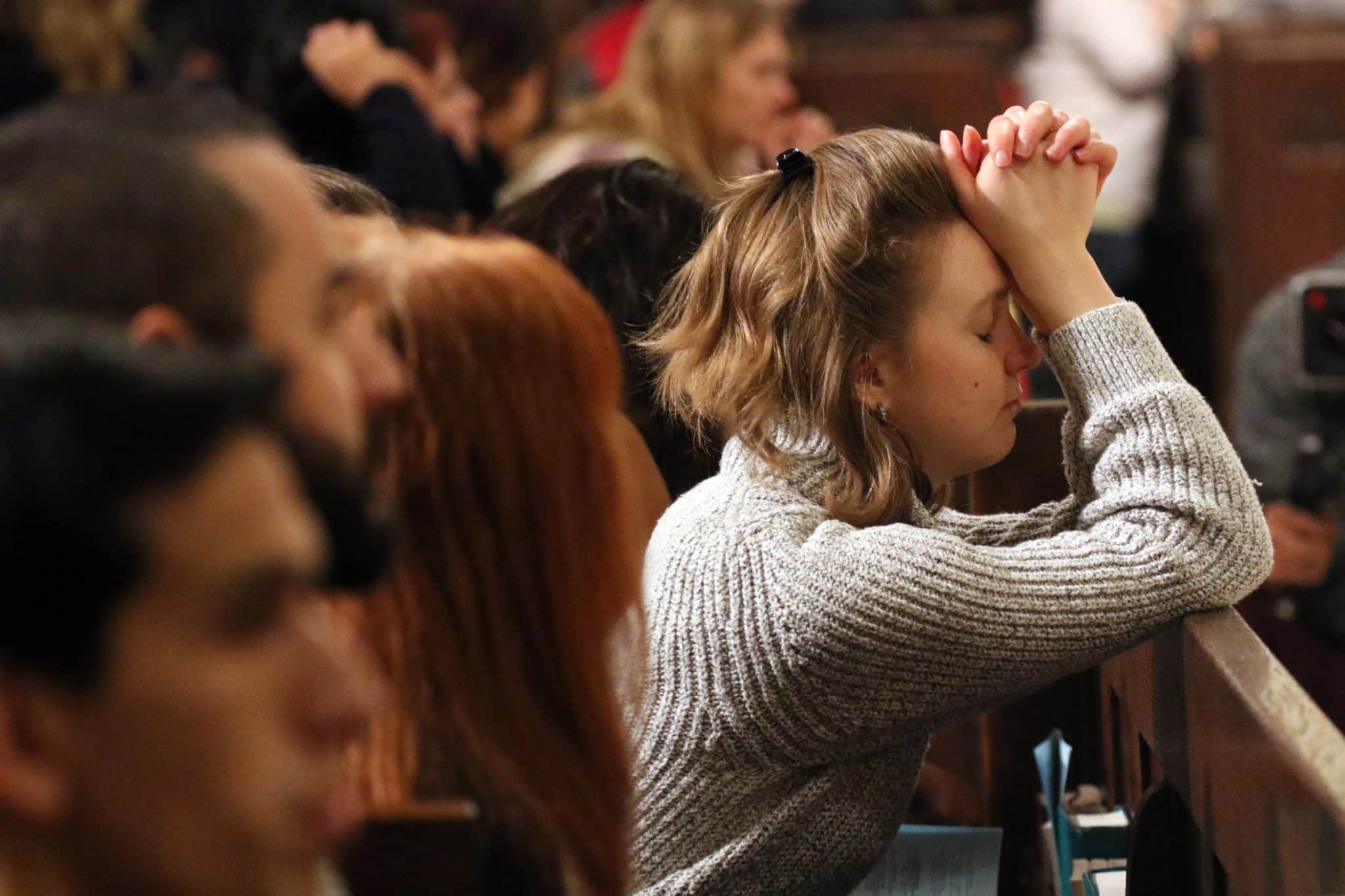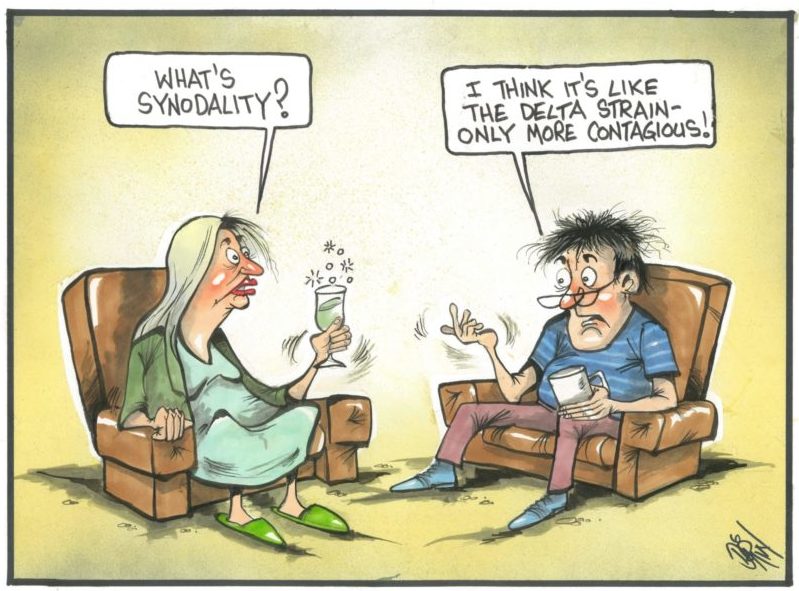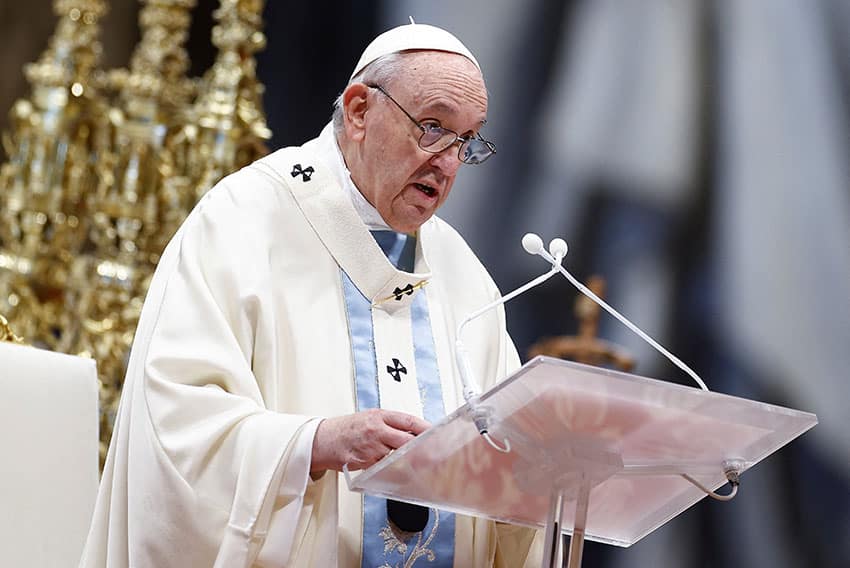
“What can be meant by the idea of ‘a listening Church?'” It was with great interest that I read Brett Salkeld’s reflection on synodality. Perhaps his most important point is his urgent warning to not confuse “a listening Church” with “the Church changing as I said I wanted it to”.
Why? Because “The problem that immediately presents itself, however, is that my neighbour, who disagrees with me on a whole range of matters of importance in the Church, thinks the same thing! And so, it becomes very easy to imagine that my role in the synod is to make my voice heard over that of my neighbour.”
In this way “A listening Church”, “a Synodal church”, and “synodality” deteriorate into euphemisms for a closed-hearted, immature and aggressive power grab in view of a particular ideological end. That some of what has been said around the Plenary Council has been in these terms is raising serious questions—for this is not, and will never be, synodality.
What “active participation” really means
Long before Vatican II the great theo-cultural thinker Romano Guardini was already writing about this in The Spirit of the Liturgy. Guardini is well-known as a formative thinker who influenced Joseph Ratzinger.
What is less-known is that Guardini was a formative thinker for someone else—Jorge Mario Bergoglio. Guardini is thus one of the numerous fraternal links that unite our previous and present holy fathers in what, of itself, is a prophetic announcement of authentic synodality to all of us.
One of the key liturgical and Catholic principles Guardini sought to recover after centuries of liturgical decay (just ask Dom Guéranger) is that of “actual participation”, sometimes mistranslated as “active” participation.
“Actual participation” doesn’t mean we give everyone in the liturgy a job. Guardini is very clear that “actual participation”—as highlighted even earlier by Pius X—means a disposition of heart and body which, while welcoming both the universal and particular, allows the universal to precede and inform the particular in me.
This is true listening: to the Lord through the others. In other words, that when I go to Mass I put to the side my own preferences—preferred intentions, hymns, themes, prayers, teachings—and first of all adopt those of the universal church as expressed in the liturgy.
For example, that my priority at Mass is not to pray for a particular sick person, but to primarily pray for the intentions expressed in the whole congregation, like those expressed in the prayers of the faithful—to which I might add the particular person.
This doesn’t mean that my own particular preferences are not important. But it does mean that, if I really want to authentically participate in the liturgy, I adopt the universal preferences of the Church, and I allow these to form me, and my personal preferences.
It is absolutely crucial that we do so because in this way I adopt the Lord’s own action through the Church in the liturgy: because neither the liturgy nor the Church is primarily about me, or even us, but rather about what the Lord is doing through and to us, and me.
This is not just Guardini’s view: Sacrosanctum Concilium, Vatican II’s decree on the liturgy, crowns this principle in confirming and restating it again and again and again.

Synodality is a form of “active participation”
Given the liturgy is the origin and destiny of all Christian life, my growing habit of actual participation is obviously not just to be switched on for Mass, and then switched off again. The more I actually participate in the liturgy, the more I live an actual participation in the Church’s life in every other aspect of my daily life.
In this way my life becomes ever less about me, and ever more about the Lord, and the others’ needs, and what the Lord is doing and saying to me through the others and to the others through me.
My presence in each daily task becomes more and more the presence of the Church, and specifically of the very risen Lord those around us are seeking. I “become” the Lord, for others. I become a missionary disciple.
And my lived experience becomes one of an ever deeper communion with God, the others, and all creation—an increased listening to and walking with the Lord, with the others—as Adam did in Eden.
This is what the Holy Father means when he is talking about synodality. In speaking of a “listening Church” we are not entering into Pope Francis’s own personal vision of the Church: we are allowing the Holy Father to remind us of and re-choose once again the ancient and primordial nature of the Church.
The origins of the English word “Church” lie in the Greek: “of the Lord”, or “of the Lord’s house”. The same goes for the Greek origin of the word “ecclesial”, being “called forth”. Both words underline the same nature of the Church: not a church of me, or of us, but us the house of people together constituted and led by the Lord.
What does Pope Francis really mean by synodality?
Synodality, “walking together”, is this constant attentiveness and cooperation with what Jesus is doing and saying through the Church. This is how the Holy Father describes synodality in his address to the 2015 Synod of Bishops: “the people of God is comprised of all the baptised who are called to ‘be a spiritual house and a holy priesthood’”.

What does this mean concretely? Drawing on the texts of Vatican II—not once, but three times—Pope Francis says this occurs in a discernment of three instances: “A synodal Church is a Church which listens, which realises that listening ‘is more than simply hearing’. It is a mutual listening in which everyone has something to learn. The faithful people, the college of bishops, the Bishop of Rome: all listening to each other, and all listening to the Holy Spirit, the “Spirit of truth” (Jn 14:17), in order to know what he “says to the Churches” (Rev 2:7).”
More precisely:
- “The Synod process begins by listening to the people of God, which ‘shares also in Christ’s prophetic office’.”
- “The Synod process then continues by listening to the pastors. Through the Synod Fathers, the bishops act as authentic guardians, interpreters and witnesses of the faith of the whole Church, which they need to discern carefully from the changing currents of public opinion.”
- “The Synod process culminates in listening to the Bishop of Rome, who is called to speak as “pastor and teacher of all Christians”, not on the basis of his personal convictions but as the supreme witness to the fides totius Ecclesiae, “the guarantor of the obedience and the conformity of the Church to the will of God, to the Gospel of Christ, and to the Tradition of the Church”. The fact that the Synod always acts cum Petro et sub Petro — indeed, not only cum Petro, but also sub Petro — is not a limitation of freedom, but a guarantee of unity.”
This process is immensely broader, richer and far more beautiful than the narrow atomisation of the isolated goals of me or my interest group: above all for the way it opens ourselves beyond ourselves, in generous charity to the difference of the others, and generous confidence in the truly dynamic leadership of the Holy Spirit leading us together to the Father through the Son, the co-eternal Logos.
Let us take very seriously the Bishops’ requests for prayer for good missionary outcomes of our Plenary Council, especially for our youth who are desperately searching for a dynamic alternative to the inadequate emptiness of nice secular atheism—who ache for Jesus.
